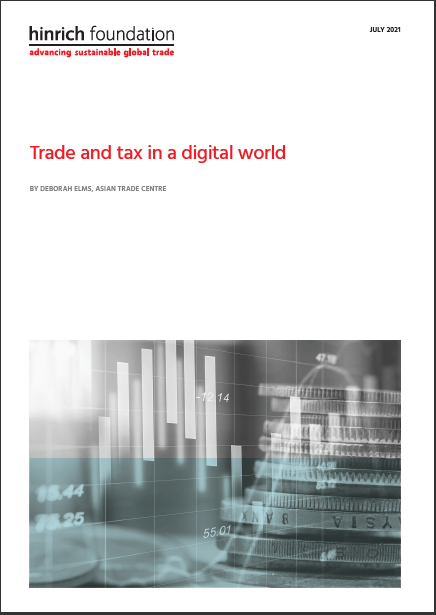Published 06 July 2021
The rise of the digital economy has complicated the traditional tax environment. The burden of managing such complexity will be substantial for the smallest firms who lack capacity and resources to compete on an international level. Absence of a global cooperation on the range of tax issues could weigh down the promise of the digital economy.
Fiscal pressures in the wake of pandemic spending have accelerated the quest to appropriately tax companies and purchases made in the digital or online environment.
Until recently, trade experts could avoid most discussions about tax and tax experts could overlook trade implications of tax policies. Communication between the two sides, even in a domestic setting, can be limited. The growing strength of the digital economy and new types of cross-border trade
activities have eroded this previous division of labor.
There are at least three important ways that the digital economy has affected traditional tax systems: by allowing firms to compete in markets without a physical presence; by the proliferation of approaches, mostly used by large firms, to more carefully manage tax; and by the participation in crossborder trade by companies previously not engaged in such transactions.
Changes in tax policy to address these challenges run a significant risk of upending cross-border trade opportunities and burdening firms of all sizes with substantial new compliance costs. As tax and trade have been considered largely in silos, unintended consequences are likely to rise.
This paper by the Asian Trade Centre, the third in our Asian Digital Economy Series, outlines the tax regulatory fragmentation currently weighing down the promise of the digital economy and its impact on firms across the region.
© The Hinrich Foundation. See our website Terms and conditions for our copyright and reprint policy. All statements of fact and the views, conclusions and recommendations expressed in this publication are the sole responsibility of the author(s).








